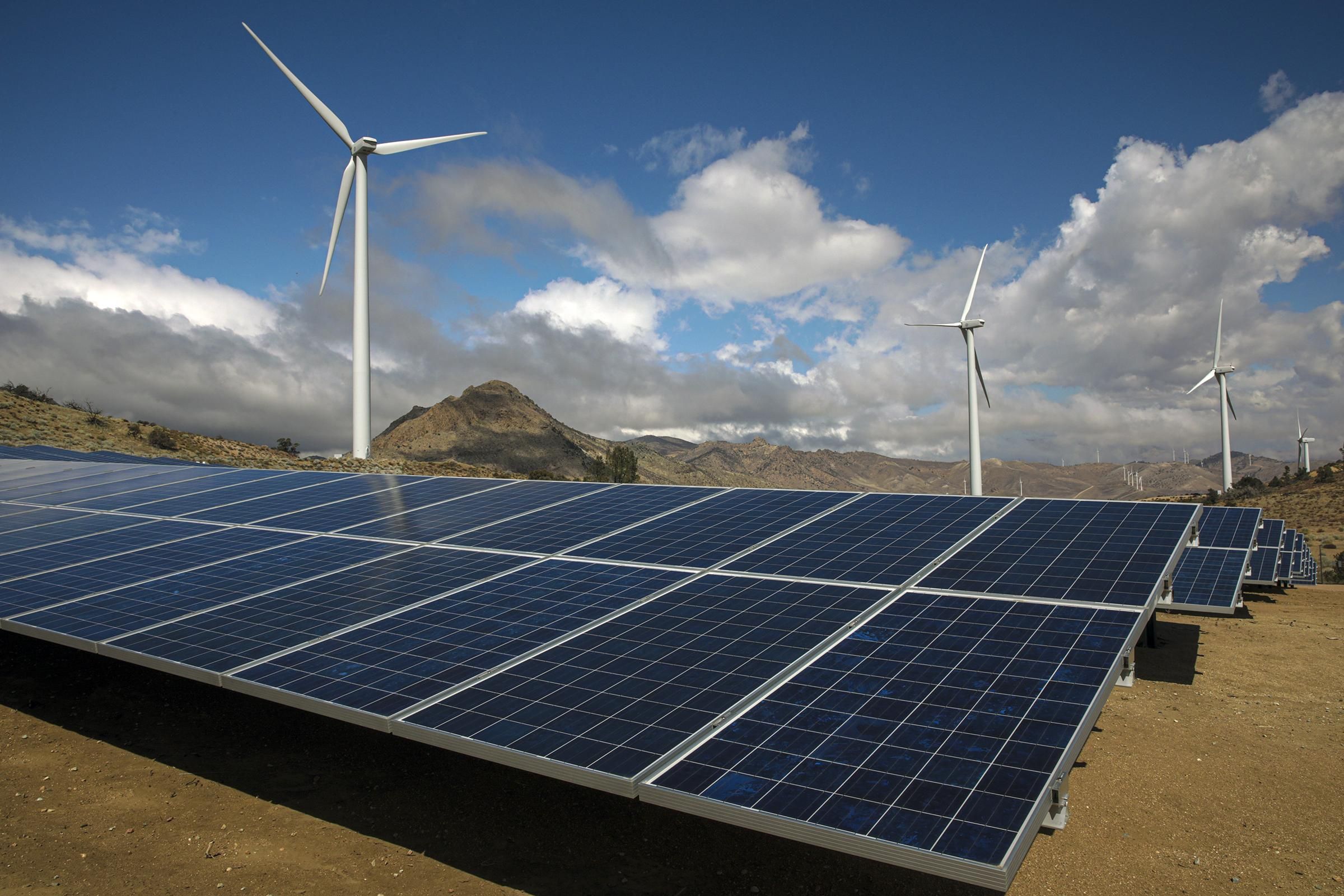
'Reform' boosters make dubious arguments about reaping benefits of fossil fuel side deal
The so-called "side deal" struck by Sens. Charles Schumer (D-N.Y.) and Joe Manchin (D-W.Va.) as part of the passage of the Inflation Reduction Act is undoubtedly designed to benefit fossil fuel interests. This is hardly surprising, given that Manchin's political career and personal wealth depend on boosting fossil fuels.
Though the text of any actual plan has still not been released, some backers of the deal are trying to make a very different argument: The 'permitting reform' at the heart of the Manchin deal will benefit clean energy projects, in particular the new high voltage transmission projects that are essential to getting renewables on the grid.
Deliberately or not, the argument appears to be conflating the 'reform' laid out in the deal—limiting environmental reviews and prioritizing fossil fuel infrastructure—with changes that would speed up the development of renewables.
This is a dangerous misdirection. There is no logical reason to think that the Manchin deal would be a win for clean energy just because there are some clean energy projects that have faced permitting delays.
Why Would a Fossil Fuel Bill Boost Renewables?
Overall, renewable projects appear to fare well under the existing regulations. Side deal supporters point to a handful of high-profile examples of projects that have faced lengthy delays, but much of that has been attributed to state and local opposition, or even problems with private financing. It is unclear how they think the Manchin deal would fix this problem.
It is worth mentioning that there is an existing federal government program, Title 41 of the Fixing America's Surface Transportation Act (Fast-41), which is intended to expedite review and approval of key infrastructure, many of which are renewable energy or transmission projects. And the Inflation Reduction Act itself also includes funding to speed up the permitting process.
When it comes to transmission projects—which are essential to getting more clean energy on the grid—evaluations of project delays point to a variety of obstacles, most of which appear linked to state decisions on permitting and siting. And it is important to note that one report found that successful projects often relied on more robust forms of public outreach, not curtailing public participation:
Developers that engage early with stakeholders and the general public and respond meaningfully to address concerns they raise can preempt or at least mitigate the impacts of some forms of organized opposition to transmission projects.
There is little evidence that the National Environmental Policy Act (NEPA) and the Clean Water Act account for project delays, so supporting a bill that seeks to weaken both is not a sensible approach to encouraging clean energy.
Do NEPA Delays Really Make It Too Hard to Build Anything?
The notion that lengthy NEPA reviews are a widespread phenomenon drives the familiar "we can't build anything anymore'' narrative. But this trope relies heavily on isolated anecdotes. A major survey of the Forest Service's 40,000 NEPA decisions between 2004 and 2020 found the vast majority are categorical exclusions—meaning they are expedited due to the minimal impact they are likely to have on the environment.
Just as importantly, the study also found that a less rigorous environmental analysis does not appear to speed up approvals:
Contrary to widely held assumptions, we found that a less rigorous level of analysis often fails to deliver faster decisions. Delays, we found, are often caused by factors only tangentially related to the act, like inadequate agency budgets, staff turnover, delays receiving information from permit applicants, and compliance with other laws. Improving NEPA efficacy, we argue, should therefore focus on improving agency capacity.
A more meaningful 'reform' of this process would be to fully fund the regulatory agencies tasked with evaluating the impacts of new proposals. Suffice it to say, this is not something the fossil fuel industry would support.
Bottom Line: Permitting Status Quo Benefits Fossil Fuels—And They Still Want More
The notion that bureaucratic delays make it difficult to build infrastructure is hard to square with reality: Over the past decade or so, the United States has built major oil pipelines and tens of thousands of miles of gas pipelines. Just a few years ago, there was basically no liquefied natural gas (LNG) gas export infrastructure; now we are the world's leading exporter of fracked gas. The same is true for oil export terminals. If anything, the fossil fuel industry has massively overbuilt over the past dozen years, which is why Wall Street investors have been demanding that oil and gas companies produce less. The debt-ridden fracking industry is paying off what it owes.
But corporate interests don't always get everything they want—and that's what is driving this 'reform' mantra. Frontline communities and climate activists have successfully forced state regulators and political leaders to block some high-profile dirty energy projects that would have posed real threats to our air, water, and climate. These victories were possible in large part because of laws like NEPA and the Clean Water Act, which require public comment and input. Reducing the public's ability to weigh in on such projects is not 'reform'—it's what the pipeline companies and polluters want.
This content originally appeared on Common Dreams - Breaking News & Views for the Progressive Community and was authored by Mitch Jones.
Mitch Jones | Radio Free (2022-09-19T19:24:24+00:00) Does Manchin’s ‘Permitting Reform’ Plan Help Clean Energy?. Retrieved from https://www.radiofree.org/2022/09/19/does-manchins-permitting-reform-plan-help-clean-energy/
Please log in to upload a file.
There are no updates yet.
Click the Upload button above to add an update.